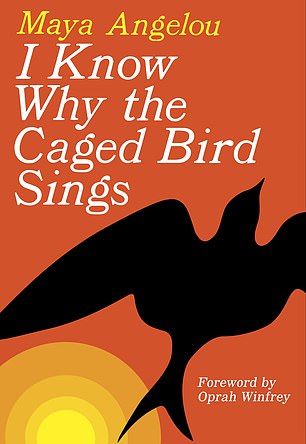Author Patricia Nicol reveals a selection of the best books on: Birdsong
- Patricia Nicol’s family participated in the RSPB’s Big Garden Birdwatch
- I Know Why The Caged Bird Sings, explores historic racism in American South
- Where The Crawdads Sing, follows a child more attuned to birds than people
Every day feels like Sunday. Not even a modern Sunday, more like one from a generation ago. But there are signs of hope: my father had his first vaccine on Saturday; in parks and gardens, green shoots push up through the soil; soon we will be being roused by the dawn chorus, and spring will have sprung.
Over the weekend, my family participated in the RSPB’s Big Garden Birdwatch, the world’s largest bird survey. This citizen scientist project gave us something different to do, plus it gave my sons a golden opportunity to snigger at the word ‘tit’.
Never previously pigeon-fanciers, like millions of others recently we’ve become twitchers, reaching out to feathered friends with bespoke seed mixes and new-fangled feeders.

Patricia Nicol reveals a selection of books featuring birdsong, including I Know Why The Caged Bird Sing (pictured left) and Where The Crawdads Sing (pictured right)
Our garden’s noisiest, most flamboyant regulars are a pair of parakeets who do an impressive high-wire act on the washing-line, but we are keen to encourage smaller birds, such as robins, chaffinches and sparrows.
Birds play a complex part in Sebastian Faulks’s Birdsong — symbols of both horror and hope. The protagonist of the World War I novel, Stephen, has a phobia of birds. They haunt a recurring dream, then become part of a living nightmare when he is buried in a trench. But throughout the novel, birds also symbolise survival and renewal.
One of the bestselling novels of the past year, Where The Crawdads Sing, by wildlife scientist Delia Owens, evokes a North Carolina marshland habitat teeming with avian life. Abandoned as a child, Kya grows up more attuned to the chatter of gulls, doves and waders than that of the nearby townspeople.
Maya Angelou’s harrowing classic memoir, I Know Why The Caged Bird Sings, explores the entrenched historic racism of the American South. Her title comes from the poem Sympathy by Paul Laurence Dunbar, born in 1872 to freed slaves.
Will we be able to spread our wings this spring? I’m not counting on it, but at least the view outside will be less monochrome.
When people can finally fly free and shake those tail-feathers, I predict a riot of song and colour.
